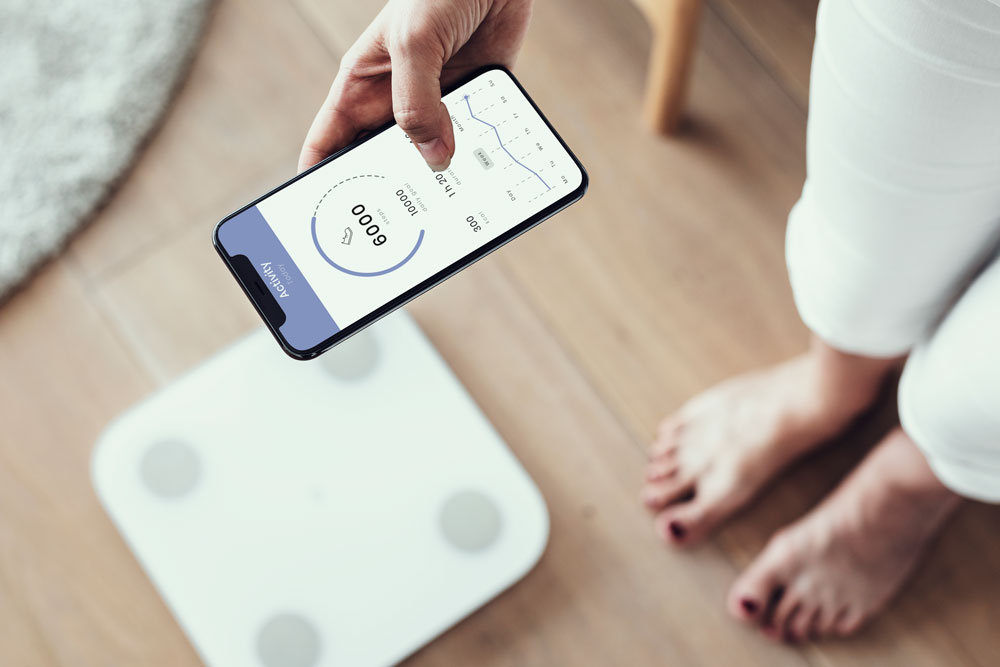
Revolutionizing Weight Management through Technology: A New Era of Health and Wellness
In today’s fast-paced world, weight management has become a pressing concern for many individuals seeking to lead healthier lives. The advent of technology has brought forth innovative solutions that have revolutionized the way we approach weight management. From wearable devices to mobile applications and smart scales, technology is playing a pivotal role in empowering individuals to take charge of their health and achieve their weight management goals. This article explores the intersection of weight management and technology, highlighting the key advancements and their impact on overall health and well-being.
Table of Contents
Toggle
The Rise of Wearable Devices:
Wearable devices, such as fitness trackers and smartwatches, have emerged as popular tools for weight management. These devices can track various metrics, including steps taken, calories burned, heart rate, and sleep patterns, providing users with valuable insights into their daily activity levels. By monitoring their physical activity, individuals can set achievable goals, track their progress, and make informed decisions about their exercise routines and calorie intake. Furthermore, many wearable devices now offer features like guided workouts, personalized coaching, and reminders, enhancing the user’s overall weight management experience.
Mobile Applications for Enhanced Tracking:
The proliferation of smartphones has led to a surge in weight management applications that cater to different needs and preferences. These apps enable users to log their daily food intake, set nutrition goals, and monitor their calorie consumption. Some applications even utilize artificial intelligence (AI) algorithms to analyze eating patterns and offer personalized meal recommendations or suggest healthier alternatives. Additionally, these apps often provide users with a supportive community, allowing them to connect with like-minded individuals, share their progress, and seek motivation, creating a sense of accountability and camaraderie.
Technology tools and weigh management:
Several technology tools assist people in weight management such as:
Smart Scales and Body Composition Analysis:
Traditional scales only provide a basic measurement of body weight. However, the introduction of smart scales has transformed this simple device into a comprehensive tool for weight management. Smart scales use bioelectrical impedance analysis (BIA) to measure body composition, including body fat percentage, muscle mass, and water weight. This information goes beyond mere weight measurement, enabling individuals to monitor their progress accurately. Some smart scales can even sync with mobile applications, allowing users to track their body composition changes over time and make necessary adjustments to their fitness and nutrition plans.
Virtual Coaching and Telehealth:
Technology has made weight management accessible to a wider audience through virtual coaching and telehealth services. Virtual coaching platforms connect individuals with professional trainers and nutritionists remotely, eliminating geographical barriers and making expert guidance readily available. Moreover, telehealth services enable individuals to consult healthcare professionals online, seek advice on weight management strategies, receive personalized meal plans, and discuss their progress. These virtual platforms provide ongoing support, education, and motivation, fostering sustainable lifestyle changes.
Data Analysis and Insights:
The vast amount of data collected through wearable devices, mobile applications, and smart scales has opened new avenues for data analysis and insights. Advanced algorithms can process this data to identify trends, patterns, and correlations, offering personalized recommendations for improved weight management. For instance, AI algorithms can detect potential issues, such as irregular sleep patterns affecting weight loss, or identify certain foods that trigger overeating. By leveraging technology-driven insights, individuals can refine their strategies, make informed choices, and achieve better results in their weight management journey.
What are the advantages and disadvantages of using technology in weight management?
Advantages of using technology in weight management:
Enhanced tracking and monitoring:
Technology allows for accurate and convenient tracking of various aspects of weight management, such as calorie intake, physical activity levels, and sleep patterns. This data can help individuals gain insights into their habits, identify areas for improvement, and make informed decisions.
Increased motivation and accountability:
Many weight management technologies incorporate features that provide motivation and support, such as goal setting, progress tracking, reminders, and rewards. These features can help individuals stay motivated, remain focused on their weight loss or fitness goals, and hold themselves accountable for their actions.
Access to information and resources:
Technology provides easy access to a wealth of information and resources related to weight management. Mobile apps, websites, and online communities offer educational content, healthy recipes, workout routines, and tips for maintaining a healthy lifestyle. This readily available information can empower individuals to make informed choices and adopt healthier habits.
Personalized approaches:
Technology enables the use of personalized approaches to weight management. Apps and devices can collect and analyze data about an individual’s body composition, dietary preferences, and activity levels to provide tailored recommendations and strategies. Personalized feedback and guidance can optimize the effectiveness of weight management efforts.
Disadvantages of using technology in weight management:
Reliance on technology:
Relying too heavily on technology for weight management may lead to a dependency on gadgets or apps. This can result in a loss of self-reliance and the ability to make informed decisions without technological assistance. It’s important to strike a balance and not solely rely on technology for long-term success.
Accuracy and reliability concerns:
Some weight management technologies, such as fitness trackers or calorie counting apps, may not always provide accurate or reliable data. Errors in tracking or measurement can lead to inaccurate calorie counts, misinterpretation of progress, and potential frustration or setbacks in weight management efforts. Users should be aware of the limitations and potential inaccuracies of the technology they are using.
Potential distraction or isolation:
Constant engagement with weight management technology, such as spending excessive time on apps or devices, can lead to distraction and isolation from real-life experiences and social interactions. It’s important to maintain a healthy balance and prioritize offline activities, social support, and face-to-face interactions for overall well-being.
Cost considerations:
Some weight management technologies, particularly advanced gadgets, or subscription-based apps, may come with costs. These expenses can add up over time and may not be affordable or sustainable for everyone. It’s important to consider the financial implications and evaluate whether the benefits outweigh the costs.
Overall, technology can be a valuable tool in weight management, offering numerous advantages such as enhanced tracking, increased motivation, access to information, and personalized approaches. However, it’s essential to be mindful of the potential disadvantages and strike a balance to ensure a holistic and sustainable approach to weight management.
Conclusion:
The integration of technology into weight management practices has transformed the way individuals approach their health and wellness goals. From wearable devices that monitor physical activity to mobile applications that track nutrition and smart scales that measure body composition, technology offers a comprehensive suite of tools to support weight management efforts. With virtual coaching and telehealth services complementing these advancements, individuals now have greater access to professional guidance and support. However, weight management still requires a balanced diet, regular physical activity, and overall behavior change. Technology serves as an aid and enhancer in this process, offering support, guidance, and data-driven insights. Though, it is crucial to remember that technology is a supplement to healthy lifestyle habits, and ultimately, long-term weight management requires sustainable behavior change.


